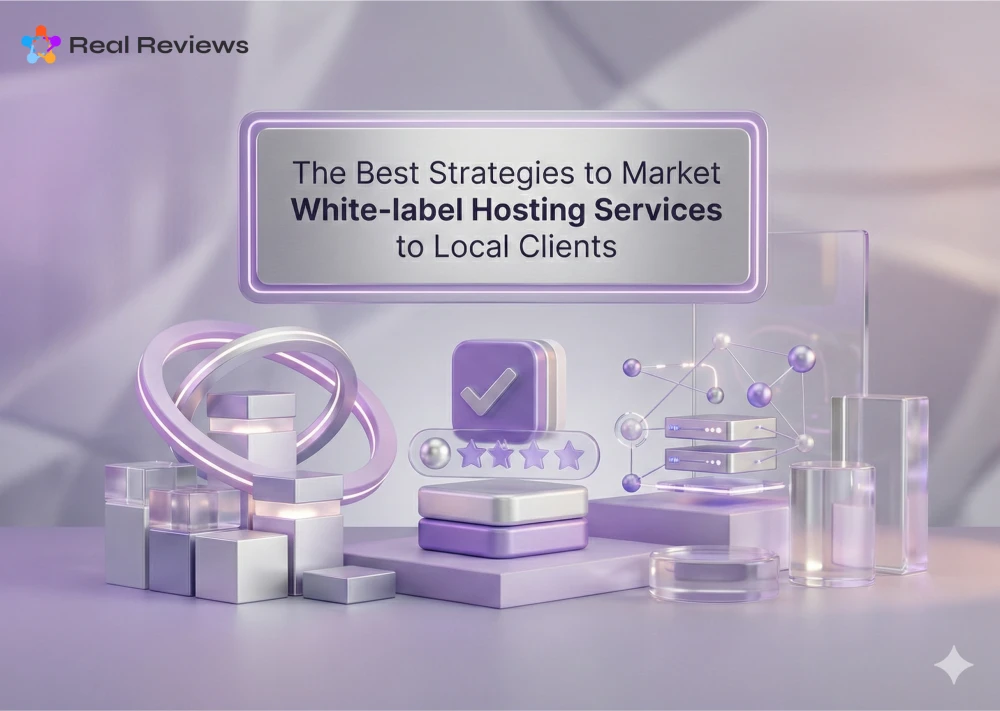
The Best Strategies to Market White-label Hosting Services to Local Clients
White-label hosting is a business model that involves reselling a larger hosting company’s resources to your clients as your own. It starts with finding a parent host to purchase the resources from and selling their RAM, bandwidth, servers, and other hosting services. This model also works well when building partnerships with local businesses or developing white-label hosting marketing strategies
Key takeaways:
- Emphasize that being local enables personalized support
- Consider what industries are common in your area
- Provide the option of registering with local directories
- Showcase satisfied local businesses
- Talk about the advantages of white-label hosting in webinars or tutorials
One notable benefit of the model is that you don’t have to take care of server maintenance, management, and other technical requirements. There are no challenging technical aspects to deal with, so the model is ideal for entrepreneurs at heart, letting them run a web hosting business and focus entirely on the financial side of things—including developing white-label hosting for small businesses.
Emphasize Personalized Support – Why White-Label Hosting for Small Businesses Works
Emphasize that being local allows you to offer personalized support, understand the local market’s needs, and provide faster response times. To build trust, you can offer face-to-face consultations, local phone support, or on-site visits. Market the fact that you offer local, reliable, and round-the-clock support.
The logical question arises: how can you cover the costs of offering your customers quality, 24/7 support? It may seem impossible, but it isn’t. If you get a reasonable price on reseller hosting, you can pass the savings on to your customers. Customer service will only grow in importance. A 2023 survey found that 90% of consumers wanted to talk to a human agent rather than use phone menus. It’s an endearing fact in the age of AI. Half said that a real person answering their questions in the middle of a purchasing decision was one of the crucial features a brand could offer, and 75% expected fast responses from agents.
What Industries Are Common in the Area?
Consider what industries are common in your area – restaurants, retail, real estate, etc. – and tailor your hosting packages accordingly. If the area is family-friendly, a hosting package tailored to a family restaurant would focus on showcasing the menu, enabling online reservations, and supporting local SEO for hosting resellers. It should include SSD storage to ensure that menus and images load fast.
Optimize for SEO & Local Visibility – Use Google My Business & Local SEO for Hosting Resellers
White-label hosting can provide the option of registering with local directories, like Google My Business. Recent statistics show that a company with a complete Google Business Profile is 70% more likely to be visited. Mobile devices are used for 57% of local search queries, and the average site has an SEO click-through rate of 13% and a bounce rate of 37%.
Now, a disheartening fact: more than 96% of websites get no traffic at all from Google. Invest in content marketing to improve your prospects. Write blogs, case studies, or testimonials featuring local clients and their success stories using your hosting – an approach that strengthens white-label hosting marketing and your reputation among local businesses.
Consider Branding – Present Your White-Label Hosting Brand to Local Clients
Your white-label services should look professional with custom logos, dashboards, and user interfaces to instill confidence. Use the branding in client interactions, emails, and support portals to reinforce your position as a trustworthy hosting business.
Highlight Local Success Stories to Build Business Reputation & Boost Trust in Your Hosting Services
Showcase satisfied local businesses that have used your hosting services. Ask customers to leave reviews on platforms like Google or local business directories. Doing so enhances visibility and supports marketing strategies for hosting resellers.
Show How White-Label Hosting Helps Businesses
Offer webinars or tutorials in which you talk about the advantages of white-label hosting, including how it can simplify potential clients’ operations and how partnerships with local businesses can expand service offerings.
Who Benefits Most from White-Label Hosting?
White-label hosting can become a source of income on the side or even a main business for anyone who wants to provide hosting services without considering the technical side of things. It makes the web hosting niche more attractive to market entrants who don’t have the time or money to set up and manage servers. Any business with an online presence can use this type of hosting to offer their customers more services, giving a possible solution to more issues in one place.
Recap:
- Get a good price from your parent host and pass the savings on
- Write blogs, case studies, or testimonials featuring local clients
- Use the branding in client interactions, emails
- Ask customers to leave reviews on Google
- Don’t worry about the technical side of things, time, or money
06.12.2024




